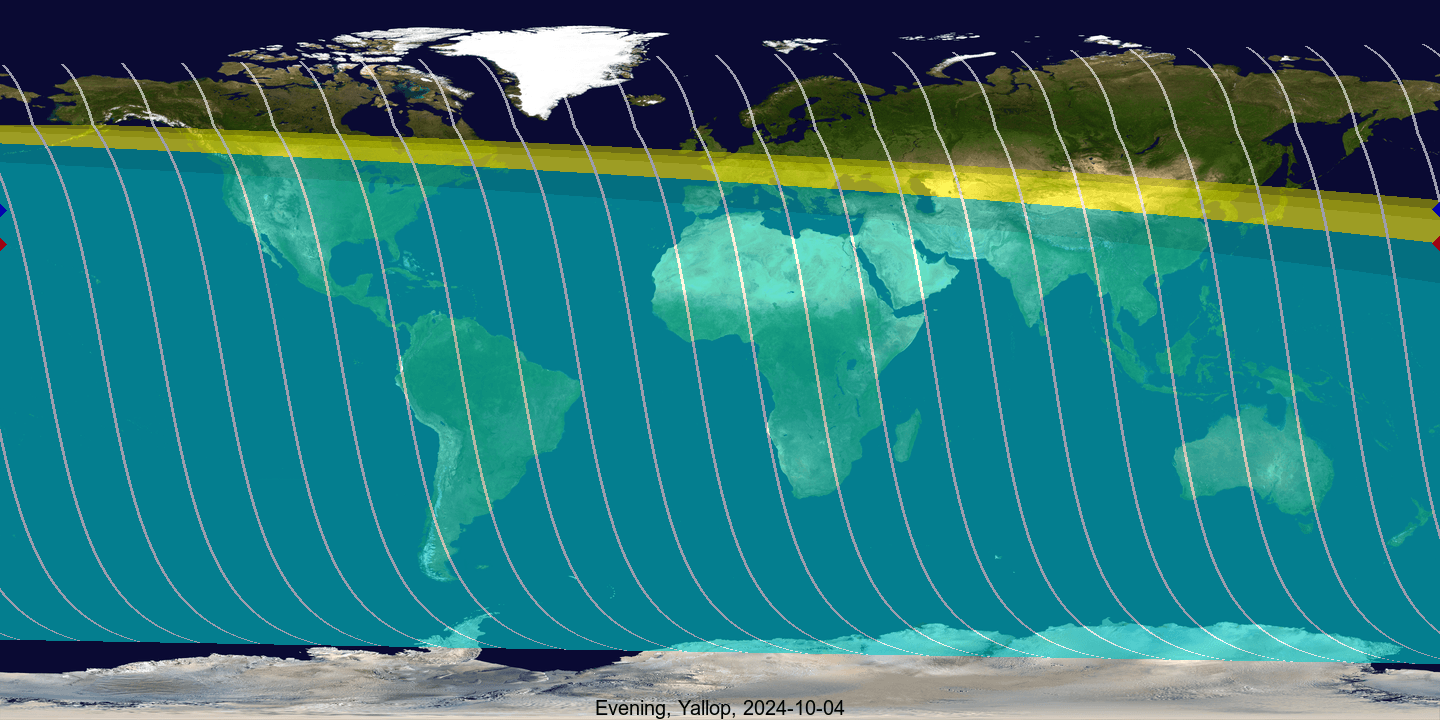21 September 2024
Shabbat Shalom,
דַּבֵּ֛ר אֶל־בְּנֵ֥י יִשְׂרָאֵ֖ל לֵאמֹ֑ר בַּחֹ֨דֶשׁ הַשְּׁבִיעִ֜י בְּאֶחָ֣ד לַחֹ֗דֶשׁ יִֽהְיֶ֤ה לָכֶם֙ שַׁבָּת֔וֹן זִכְר֥וֹן תְּרוּעָ֖ה מִקְרָא־קֹֽדֶשׁ:
DaBër el-B’nëy yis’räël lëmor Bachodesh haSH’viyiy B’echäd lachodesh yih’yeh läkhem shaBätôn zikh’rôn T’rûäh miq’rä-qodesh.
Speak to the children of Israel, saying: In the seventh month, on the first of the month, it shall be a Sabbath for you, a remembrance of [Israel through] Teruah a holy occasion.
Vayikra (Leviticus) 23:24
The seventh new moon is anticipated to be visible on October 4th, 2024, ushering in the holiday of Yom Teruah, also known as the Feast of Trumpets. While the new moon will generally be visible worldwide on this date, there’s a slight chance that it could be observed a day earlier, on October 3rd, in certain regions spanning from the southern United States down to South America. This early visibility, however, is contingent upon favorable atmospheric conditions and a clear view of the western horizon at sunset. The actual visibility of the new moon can vary depending on local weather conditions and the observer’s location.
Share your seventh month new moon reports.
| 3 October 2024 | 4 October 2024 | 5 October 2024 |
 |
 |
 |
Seventh Moon in the Miqra
- Bereishit (Genesis) 8:4
- Vayikra (Leviticus) 16:29; 23:24, 27, 34, 39, 41; 25:9
- Bamidbar (Numbers) 29:1, 7, 12
- Melachim I (1 Kings) 8:2 (mentions Ethanim)
- Melachim II (2 Kings) 25:25
- Divrei Hayamim I (1 Chron.) 27:10
- Divrei Hayamim II(2 Chron.) 5:3; 7:10; 31:7
- Ezra 3:1, 6
- Nechemiah (Nehemiah) 8:2, 14
- Yirmiyahu (Jeremiah) 28:17; 41:1
- Yechezkel (Ezekiel) 45:25
- Chaggai (Haggai) 2:1
The biblical references highlight the significance of the seventh month and the new moon within Jewish tradition. It encompasses various events and observances related to this period, including:
- The Flood: Genesis 8:4 marks the seventh month when Noah’s ark rested on the mountains of Ararat, symbolizing a new beginning.
- Holy Days: Leviticus outlines numerous festivals and practices connected to the seventh month, such as Yom Kippur (Day of Atonement), Sukkot (Feast of Tabernacles), and Rosh Hashanah (the New Year).
- Temple Dedication and Restoration: Several references in Kings and Chronicles emphasize the importance of the seventh month for dedicating and restoring the Temple in Jerusalem.
- Other Significant Events: The list also includes mentions of the seventh month in the context of Ezra and Nehemiah’s leadership, Jeremiah’s prophecies, and Ezekiel’s visions of the future Temple.
Overall, these verses underscore the spiritual importance of the seventh month in the Hebrew calendar, particularly the observance of the new moon as a time of renewal, celebration, and reflection.
May יהוה be with you,
Ya’aqov Meyer
Interesting reading from Devorah’s Data Tree:
Theses readings primarily discuss the determination of the 7th Biblical month and the beginning of the Biblical year in 2024, with a focus on the agricultural practices and observations related to the barley harvest in Israel.
- When Does the 7th Biblical Month Begin (2024) and When Is The 7th Month (2024) explain that the 7th Biblical month will begin on Friday, October 4th, 2024 at sunset. It emphasizes the importance of sighting the new moon with the naked eye from Israel to determine the start of the month and addresses differing opinions on when to begin the Biblical year.
- When Was Chodesh Haviv explains that the Biblical year begins with Chodesh HaAviv, the month when barley in the Plains of Jericho reaches the Aviv stage, signifying its readiness for harvest. This ensures the Biblical calendar stays aligned with the solar cycle.
- Types of Barley Fields details the different types of barley fields encountered during inspections, including volunteer fields, highly cultivated fields, and more natural fields. It highlights the importance of using the more natural fields to determine the beginning of the year.
- The Holiday At The End Of The Agricultural Year discusses the significance of Chag HaSukkot (Feast of Booths) as the celebration of the final harvest milestone. It explains that the vast majority of the harvest should be completed by this time.
Overall, these readings provide insights into the methods and considerations involved in determining the Biblical calendar, emphasizing the connection between agricultural practices and the observance of religious festivals. They highlight the importance of observing the natural barley harvest in the Plains of Jericho to establish the beginning of the Biblical year and ensure the proper timing of subsequent months and holidays.
